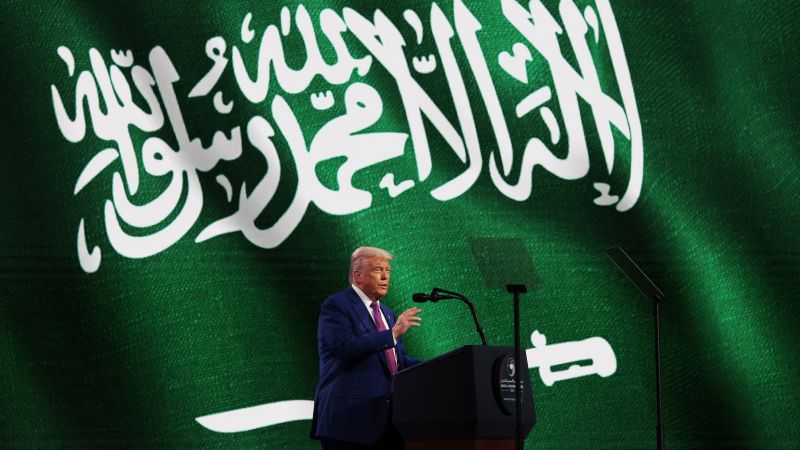President Donald Trump’s foreign trip to the Gulf states showcases his admiration for their development models, characterized by lavish welcome ceremonies and impressive infrastructure projects. Trump’s visit, which includes stops in Saudi Arabia, Qatar, and the United Arab Emirates, highlights his focus on attracting foreign investment to the U.S. as part of his economic strategy. The trip also underscores the growing geopolitical and economic influence of the Gulf region, particularly Qatar, which plays a crucial role in mediating international conflicts and facilitating diplomatic efforts.
Trump’s affinity for authoritarian leaders in the Gulf is evident, raising questions about his political aspirations and preference for unchecked power. His admiration for the Gulf states’ rapid development and transformation contrasts with his criticisms of regulations and environmental constraints in the U.S. The visit emphasizes Trump’s emphasis on economic gains over scrutinizing foreign leaders’ actions, as seen in his interactions with Saudi Crown Prince Mohammed bin Salman.
While Trump seeks investment deals and economic wins during his tour, the lifting of U.S. sanctions on Syria following the fall of the Assad regime reflects broader foreign policy decisions. Qatar’s pivotal role in diplomatic efforts, hostage releases, and peace negotiations highlights its regional significance despite criticisms of its human rights record. As Trump navigates complex relationships in the Gulf, concerns arise over potential ethical dilemmas and constitutional implications, especially regarding offers of gifts like a new presidential jet.
The Gulf states’ rise to power and influence, coupled with their active role in international affairs, presents both opportunities and challenges for U.S. foreign policy. Trump’s alignment with Gulf leaders as trusted partners underscores a shift towards prioritizing economic interests and strategic alliances in the region, signaling a departure from traditional alliances in Europe. Amidst debates over ethical considerations and human rights issues, the Gulf states’ growing influence on global affairs continues to shape diplomatic dynamics in an evolving geopolitical landscape.

